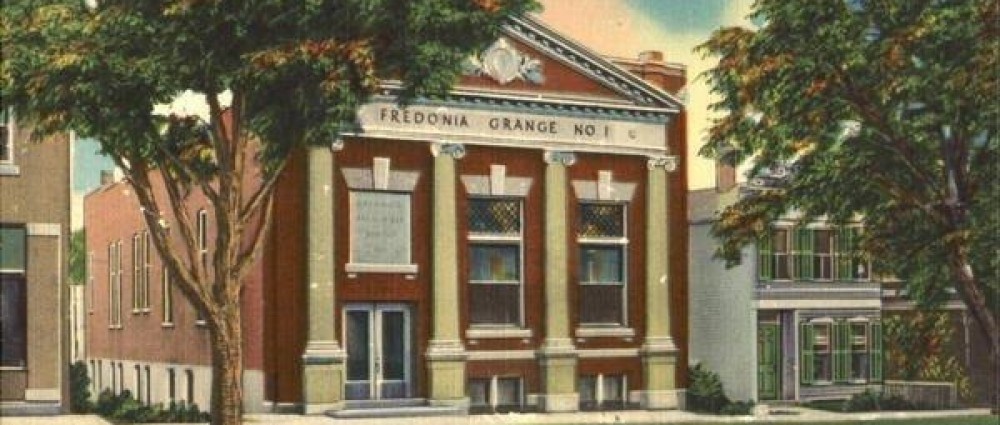On December 4, 1867, in a small Washington, D.C building that housed the office of William Saunders, Superintendent of Propagating Gardens in the Department of Agriculture, the Order of Patrons of Husbandry was born. Here, sitting around a plain wooden table, a small group of seven earnest men, planned what was destined to become a vital force in preserving and expanding American democracy. They were all men of vision, they had faith in God, in their fellow men and in the future. The Seven Founders of the Order of Patrons of Husbandry were:
- Oliver Hudson Kelley
- William Saunders
- Aaron B. Grosh
- John R. Thompson
- Francis M. McDowell
- William M. Ireland
- John Trimble
- (Assisted by Caroline Hall)
Their names are inscribed on a Birthplace Marker located near the site of the original building on the south side of 4th Street SW, near Madison St on the Mall. The marker was officially dedicated on September 9, 1951 and is the only private monument on the Mall.
ORIGINS OF THE GRANGE
Oliver Hudson Kelley is regarded as the father of the Grange movement. He was born in Boston in 1826, and in early life took up a homestead in Minnesota.
In 1856, Kelley, having served several years as a member of the small staff of the newly created Department of Agriculture, was authorized by the first Commissioner of Agriculture, Isaac Newton, to make a survey of farm conditions in the South following the Civil War.
During this time Kelley conceived the idea that a fraternal organization, composed of farmers from all sections of the country, would help heal the scars caused by the war, as well as improve the economic and social position of the farm population.
Upon his return to Washington, Kelley communicated his ideas to some of his friends in government service, and enlisted their support.
These men framed a ritual consisting of seven Degrees and a constitution and met in the office of William Saunders in Washington, D.C. on December 4, 1867, to formally organize the National Grange. Miss Caroline A. Hall, a niece of O.H. Kelley, who long served as his secretary, was the first to suggest that women be admitted to membership on a basis equal to men.
Resigning his position in the Department of Agriculture, Kelley then left Washington on April 3, 1868, to establish the new organization throughout rural districts. On April 16, 1868, in Western New York, he founded Fredonia Grange No. 1, which is still an active Grange today.
Before the close of the year 1872, over a thousand Granges, located in more than half of the states of the Union, were organized. Kelley and his family then moved to Washington, D.C. to live. It was in the parlor of this home in Georgetown, January 8, 1873, that the National Grange first met as a representative body, with 27 delegates from eleven states.
